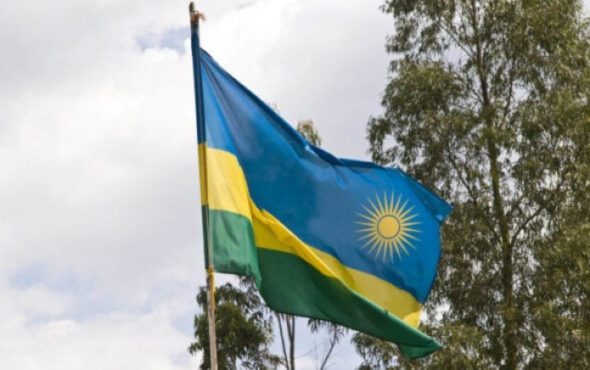
LGBTQ+ rights groups are concerned that gay, bisexual, and transgender refugees could face persecution if they are sent to Rwanda under Britain’s policy to deport some asylum seekers to the East African nation.
Britain says asylum seekers who enter the country illegally could be flown to Rwanda, where they will be allowed to seek asylum or ask to be returned to their home countries.
The policy has been condemned by the U.N. refugee agency and rights groups, while the European Court of Human Rights intervened to stop the first plane from departing last week.
LGBTQ+ rights groups have expressed concern about the risk of discrimination and a lack of legal protections in Rwanda, though Britain’s Home Office (interior ministry) said there is no “real risk” of mistreatment in the African country.
Here are the key details on the policy and its impact on LGBTQ+ people:
Will be LGBTQ+ migrants be sent to Rwanda?
Gay, lesbian and bi asylum seekers who arrive in Britain illegally will not be exempted from possible deportation to Rwanda, a Home Office spokesperson said.
But a ministry report acknowledged that the rights situation in Rwanda might merit a different consideration for trans people because changing gender is illegal in the East African country.
When asked whether trans people would be included, the Home Office spokesperson said only that each case would be assessed individually and that no one would be relocated if it was unsafe.
The government has declined to give further details of any exemption criteria in the policy, saying that to do so would allow migrants and people smugglers to cheat the system.
What rights do LGBTQ+ people have in Rwanda?
Rwanda is one of a handful of African nations that do not criminalise gay sex, and the country is a signatory to a U.N. statement condemning violence against LGBTQ+ people.
However, same-sex marriage is banned and LGBTQ+ people are not protected from discrimination by any specific legislation. Trans people also cannot legally change their gender.
Rights groups in the largely conservative Christian nation report that homophobic attitudes are widespread.
In an open letter to the Home Office, Human Rights Watch (HRW) said LGBTQ+ people face stigma and mistreatment in Rwanda, adding that a history of human rights violations means it “cannot be considered a safe third country” for refugees.
“On paper Rwanda is a better place for LGBT people than in practice,” said Graeme Reid, the group’s lead on LGBTQ+ rights.
Rwanda’s government did not immediately respond to a request for comment about LGBTQ+ rights.
Speaking during a news conference on June 14, Rwandan government spokesperson Yolande Makolo said officials were working to “provide a conducive environment” for anyone who comes to live there.
“We want Rwanda to be a welcoming place and we will do our best to make sure the migrants are taken care of and they are able to build a life here,” she said.
How many asylum seekers in Britain are LGBTQ+?
Lesbian, gay and bi asylum seekers made up 3% of asylum applications in 2020, the latest year for which Britain holds official data, down from 5% in 2018 and 2019.
The British government does not hold data about other sexual or gender identities of asylum seekers.
The official numbers are also likely to be an undercount, as many do not know they can apply for refugee status on the basis of their sexuality, or are too afraid to do so, said Karen Doyle, from migrant rights group Movement for Justice.
“People can’t come out in the conditions of detention, when many are probably still suffering from a lot of shame and self hate,” she told the Thomson Reuters Foundation.
Pakistani nationals have accounted for the largest number of applications based on sexuality for the past six years, as homosexuality is criminalised in Pakistan.
Half of migrants arriving from Uganda apply for asylum based on sexuality. The nation also bans gay sex, with President Yoweri Museveni calling gay people “deviants” last year.
What does the British government say?
The government hopes the deportations will stem the flow of migrants who make dangerous boat crossings across the English Channel from France.
A Home Office assessment said LGBTQ+ Rwandans report “some societal discrimination and abuse, including discrimination in employment, eviction, ostracism from family and threats of violence”.
It also noted there was a lack of reporting of crime against LGBTQ+ people to police “due to stigma and fear of harassment”.
However, it said discrimination or intolerance were “not sufficiently serious … to amount to persecution or serious harm” for gay and bi people, though it added that the situation “may be different for trans persons”.
A Home Office spokesperson said the policy would allow migrants to build a new life in Rwanda.
“Our assessment concluded that LGBT+ people did not face a real risk of persecution,” the spokesperson added.
“The overall findings were that Rwanda is fundamentally a safe and secure country with a track record of supporting asylum seekers.”
Reporting by Lucy Middleton.
GAY TIMES and Openly/Thomson Reuters Foundation are working together to deliver leading LGBTQ+ news to a global audience.



